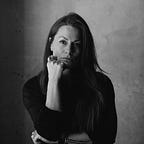Out of the Box
When the Danish film director Alex Gabriel won the Oscar for best foreign film with Babette’s Feast in 1987, and Bille August then repeated the success with another statue for Denmark the following year with his Pelle the Conqueror, Denmark had high expectations for the near future of their film industry. However, Danish filmmakers had trouble keeping up with the high-budget films of Hollywood, and the early 90’s did not produce any mayor international triumphs. A couple of filmmakers were especially frustrated with the “new technological storm” as they expressed it. To them, it seemed that the fast-paced action-packed films from Hollywood received all the praise. Whether this really was the reason, or if these young filmmakers were merely jealous and annoyed because they weren’t provided with the same high budgets as Hollywood filmmakers were, is beside the point. What is important here is to realize that the filmmakers found themselves in a desperate situation where they felt overlooked and going down-hill, but instead of declaring themselves defeated they decided to think out of the box.
I think currently many people can relate to this situation of desperation, feeling overlooked, forgotten and uncertain of what the future will bring. Most of us have been affected in some way or the other by the world pandemic. Everyone has dealt with the situation in very different ways. Some people panicked, some people lost their drive and energy, some were unable to concentrate, and others were close to give up all together. I, on the other hand, chose to look at this as an opportunity for myself. In fact, I have never worked as much and as concentrated and motivated as I did during the confinement.
I also work with film as a writer/director, and when you are trying to break through in this industry every year, every month, every week, every hour of the day counts for you. I saw how film productions were shut down, people losing their jobs, cinemas closing and film festivals cancelling their events. It was a scary time and no one knew (and we still don’t know) how much the film industry was going to be affected by this sudden stoppage. The very first thing I thought about were the Danish film directors Lars Von Trier and Thomas Vinterberg; the two filmmakers who were so frustrated in the 90’s. They came up with the Dogme 95 Manifest and the Vow of Chastity — a set of 10 rules a film director must follow if he/she wants to make a Dogme film. The Vow of Chastity includes such rules like: “Shooting must be done on location”, “The sound must never be produced apart from the images”, “The camera must be hand-held” and “The film must not contain superficial action”. Conveniently all these rules will automatically lower your film’s budget. So, an artistic need for expressing a truer and more pure form of film, or simply a media gimmick to cover the fact that they needed to bring the budget down? No matter what, it worked. Thomas Vinterberg made The Celebration that won the Jury Prize at Cannes Film Festival, and Lars Von Tried made The Idiots that was nominated for the Palme d’Or. These two films were the first of out 35 Dogme films, and they paved the way for their own success as well as the success of the Danish film industry on an international level.
Thinking of these two filmmakers reminded me of what you can do in desperate situations. Instead of feeling defeated, grab what is holding you back and turn it into your advantage. Social distance, you say? Okay, I will use distance to my advantage. I pitched the idea of making a short film 100% remotely to a group of international filmmakers I had met online though the Facebook group The Entertainment Industry Mastermind Group during the confinement. All meetings, table reads, casting, rehearsals, preparations, and post production would be done via Zoom and other online platforms. The group loved the idea, and within a matter of few weeks we had assembled the team, had a final draft on my script “The Pill” ready and moved into preproduction. The team consisted of people from around the world: Hollywood, Miami, Spain, India, Holland, Uruguay etc., making how to navigate all the different time zones one of our biggest challenges.
The film was prepared, funded, shot and finished remotely with the involvement of 9 different countries in the midst of the pandemic. The journey was full of challenges but also great opportunities for learning new things and connecting with people across the globe. In times of desperation I choose to be creative and think out of the box.
To learn more about the film The Pill go to www.thepillthefilm.com
